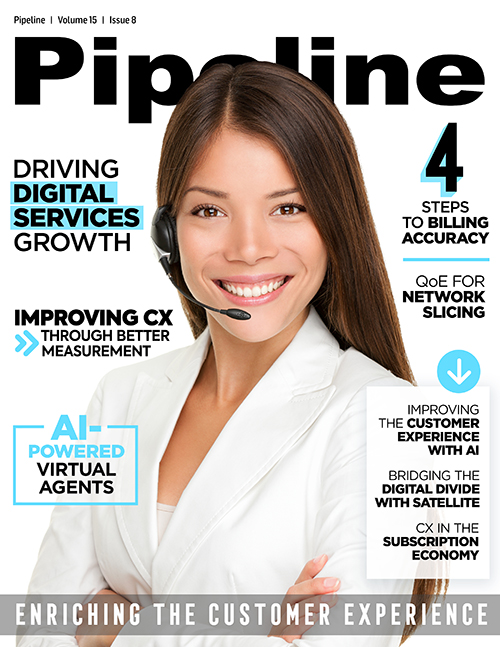Drive Digital Services Growth with Flexible Monetization
5G and IoT Mean Even More to Monetize
Emerging technologies will continue to disrupt the digital service market and create new opportunities to be monetized. The Internet of Things (IoT) is already driving ecosystems of always-connected devices and people and enabling services like subscription-based monitoring, predictive maintenance and consumption-based charging based on sensor-driven triggers.
To illustrate, let’s consider the example of a 3D printer. Not long ago, a customer would simply buy the printer and have no ongoing relationship with the manufacturer. Now with IoT and subscription-based business models, this scenario has completely changed. Customers can pay a monthly fee to subscribe to a printer-as-a-service and IoT sensors can track possible issues like clogged nozzles and overheating and provide alerts. These sensors can also detect when a cartridge is low and present an option to order replacements via a mobile app. This approach can be monetized via a combination of subscription charges, one-time charges for alerts, and usage-based charges for consumables—all through one flexible monetization system that provides an intuitive digital customer experience.
Upcoming high-speed 5G mobile networks will provide even more new service opportunities. Oracle’s Digital Services survey shows that 5G will not only benefit the telecom industry but will also offer a new paradigm in connectivity across industries. The lightning speeds and near-zero latency of 5G will enable many new digital services in areas ranging from autonomous vehicles to remote surgery to millisecond video downloads. Survey respondents indicated they believe smart cities and connected or autonomous vehicles will prove to be key opportunities in a 5G world.
In the same survey, respondents identified the top new digitally enabled areas of opportunity their companies are looking to explore. Prominent examples include:
- E-commerce: E-commerce, including original goods and services, was cited as one of the top opportunities for digital services by 48 percent of respondents in the telecom industry and 50 percent of respondents in other industries.
- Digital customer engagement: Following e-commerce, digital customer engagement tools for apps or websites were cited as a top digital services opportunity by nearly half of respondents in both the telecom industry (46 percent) and those in other industries (44 percent).
- Smart cities: Smart cities, including such digitally connected features as parking, tolls, traffic, lighting and security, were cited as a top opportunity for digital services by 42 percent of respondents in the telecom industry and 34 percent of respondents in other industries.
- Digital Media and Entertainment: Thirty-nine percent of respondents in the telecom industry and 44 percent of respondents in other industries cited online or over the top (OTT) digital media and entertainment as a top opportunity for digital services.
To illustrate how these digital service opportunities will require flexible monetization capabilities, consider a smart city that fully automates monetization with IoT-equipped smart meters. This city can combine usage-based, recurring, and one-time charges and consolidate multiple services on a single itemized invoice with a unified view of usage and behavior, offering a streamlined customer experience for residential and commercial utilities users. Futuristic concepts of smart cities that include flying cars may be farther down the road, but organizations can begin today by implementing monetization strategies in more familiar scenarios like smart parking and smart tolling.
Innovative businesses will be positioned to launch many new digital services in a range of formats and models and will need agile and powerful monetization solutions to fully capitalize on the opportunities promised by upcoming technologies.
Forward-thinking businesses are laying the groundwork for success in monetizing these digital services with business models ranging from consumption-based to subscription to bundles, all at massive scale. They will capitalize on the opportunities promised by new technologies with the agility to quickly launch new services to provide powerful customer experiences.
A New Model for Success
Failure to compete with today’s customer-centric digital services can compromise a company’s revenue growth as customers defect to better services. Companies that lag risk a loss of positive brand perception in the market. As these new digitally enabled models become the new normal for consumers and corporate customers, businesses will be forced to disrupt or be disrupted. Those that move swiftly to future-proof their businesses with robust and flexible monetization capabilities will reap the benefits of deeper, more lasting customer relationships in the digital economy.



















